Russia, Iran To Collaborate On New Major Treaty, Says Deputy FM
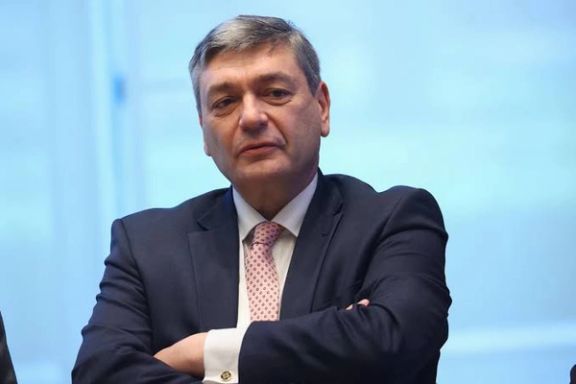
Russia and Iran are actively negotiating a new treaty to strengthen and expand their bilateral cooperation, according to Russia's Deputy Foreign Minister Andrey Rudenko.

Russia and Iran are actively negotiating a new treaty to strengthen and expand their bilateral cooperation, according to Russia's Deputy Foreign Minister Andrey Rudenko.
Deputy Minister Rudenko made this announcement during a session hosted by the Valdai Discussion Club, highlighting the increasing positive momentum in Russia-Iran relations in recent years.
"We are working on a new major treaty with Iran, which will encompass, among other things, our key areas [of cooperation]," stated Deputy Foreign Minister Rudenko.
The development of this new treaty underscores the commitment of both nations to strengthening their partnership and fostering closer ties. Over the past few years, Russia-Iran relations have steadily progressed, promising further advancements in their collaboration.
During the Iranian President's visit to Moscow in January 2022, he presented a draft of a 20-year cooperation agreement, which would update the previous 2001 version. However, Moscow has yet to sign this proposed agreement.
While Iranian officials had previously suggested that preparations for the agreement were finalized and anticipated a swift signing when the two presidents met, recent reports indicate that additional preparations are deemed necessary.
One factor affecting the pace of these negotiations is the impact of international sanctions on Iran's oil industry. Notably, major Chinese and Russian companies, recognized for their global presence, have been cautious about engaging in business with Iran due to these prevailing sanctions.
Despite Iran's existing 25-year contract with China, signed on March 27, 2021, and ongoing negotiations for a 20-year economic trade deal with Russia, there has been public discontent in Iran regarding these agreements. Concerns have been voiced by many Iranians who fear that such pacts may potentially compromise the nation's interests.
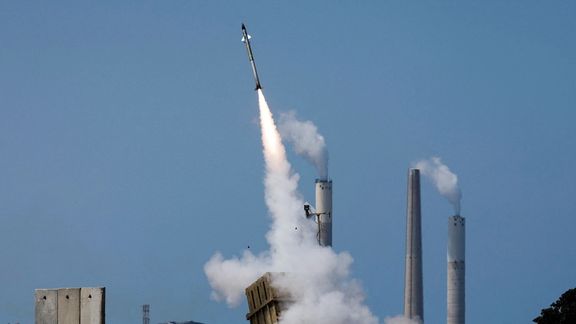
A former counter-terrorism advisor to two Israeli prime ministers triggered an intense debate about whether Iranian proxies will attack Israel in September or October.
There is, however, disagreement within Israel’s security and defense establishment over a planned Iran-backed attack against the Jewish state.
Yigal Carmon, the founder of the Middle East Media Research Institute (MEMRI) and one of Israel’s leading counter-terrorism experts, wrote an August 31st article titled “Signs Of Possible War In September-October,“ in which he argued a “confrontation could result from an uncontrolled deterioration on the ground or from the use of new and unusually deadly weapons by these movements [Hamas and Hezbollah].”
Carmon said, “neither Hamas nor Hezbollah are eager to start a comprehensive confrontation with Israel” but noted that growing acts of jingoism and saber-rattling by both Iranian regime-backed jihadi movements (including Palestinian Islamic Jihad) on Israel’s borders.
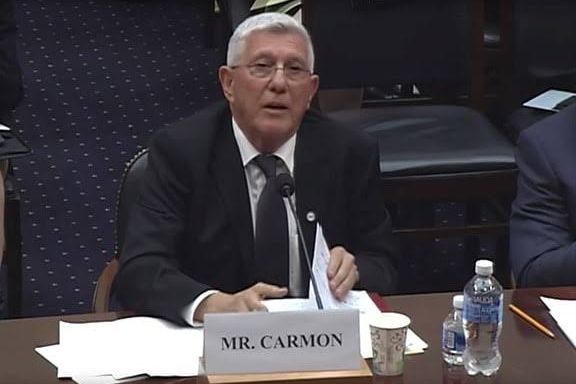
Hezbollah has set up tents in the Har Dov area within Israeli territory and was involved in “dismantling surveillance cameras along the border fence near Fatima Gate, and firing an anti-tank missile into Israel,” wrote Carmon.
Carmon, who is a fluent Arabic speaker, added “Hezbollah, which does not recognize the Blue Line as the international border between Lebanon and Israel, has recently made a new territorial claim, demanding that Israel give Lebanon sovereignty over the northern Rosh Hanikra railway tunnel, likewise in Israeli territory. At the same time, it also demands to curtail UNIFIL's freedom of action in South Lebanon.”
The US government and many European states have classified Iran’s strategic partner, Hezbollah, a foreign terrorist organization. Both the US and EU have designated Hamas and the PIJ terrorist entities.
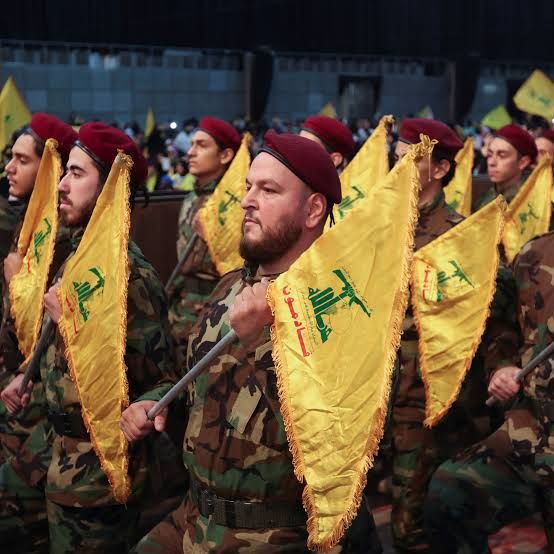
Carmon wrote, “There has also been an increase in efforts by Iran and Hezbollah to smuggle weapons into the West Bank, similar to the smuggling of weapons into Gaza. PIJ secretary-general Ziad Al-Nakhaleh said that, during his June 2023 meeting with Iranian Leader Ali Khamenei, the latter had ‘reiterated [the need to] develop the arming of the West Bank and the resistance there.’ Nakhaleh added: ‘We, as Palestinians and as resistance forces and movements, understand the importance of arming the West Bank, but this requires efforts by the Palestinians themselves, and also the assistance of our brothers in the Islamic Republic of Iran.’”
The spike in recent activity between Iran’s foreign minister Hossein Amir-Abdollahian and Tehran’s PIJ, Hamas and Lebanese allies in Beirut was also a subject of Carmon’s analysis.

Abdollahian stressed that in the Beirut meeting the statements of Khamenei about the need "to help the West Bank" and about Iran's "ongoing [commitment to] assisting the resistance with all its might." Amir-Abdollahian added, "the establishment of the joint Hamas-PIJ [war] room reflected a smart move on the part of the resistance.”
Carmon noted that Amir-Abdollahian also met with Hezbollah Secretary-General Nasrallah, who then met with Al-'Arouri and Al-Nakhaleh to "make a joint assessment of the situation in the West Bank, the escalation of the resistance activity and the latest Israeli threats."
Abdollahian and Iran’s allies underscored at the meeting "the steadfastness and steadiness of all the forces of the resistance axis in the struggle against the Zionist enemy," and cooperation between the "resistance movements" in Palestine and Lebanon.
When asked about Carmon’s analysis, Brigadier-General (res) Amir Avivi told Iran International, "While the specter of war unfortunately always looms along and beyond our borders, whether fueled by Iranian money and weapons or online incitement, at this time I do not share the assessment of an imminent war in September or October.
The terrorist organization Hezbollah in Lebanon has indeed been conducting provocations along the border, and the other Iranian proxies have made belligerent statements.”
Avivi, the founder and CEO of the Israel Defense and Security Forum (IDSF), added, “And yes, religious holidays are historically periods of inter-community tensions, but at this time I believe that neither Hezbollah nor Hamas have an appetite for a full-blown confrontation with Israel, because they understand how devastating it would be for them.”
Carmon had also warned in his article that “During the Jewish holidays in September and October, Jews are likely to visit the Al-Aqsa compound, as happens every year. Hamas and Hezbollah spokesmen have stressed that this could lead to a regional war.”
Avivi noted that “Both Hamas and Hezbollah are suffering from internal unrest and lack of legitimacy in their respective fiefdoms, and it would be wise of them to refrain from jeopardizing their own future. Contrary to media reports and wishful thinking amongst Iranian proxies, the IDF is fully fit for combat, alert and ready to respond to any aggression."
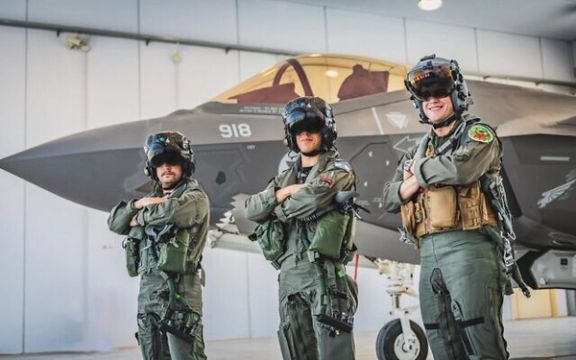
When presented with these arguments, Carmon told Iran International that “I said they [Hamas, Hezbollah and Palestinian Islamic Jihad] do not want it[war] but things can get out of control.”
Carmon raised the example of Nasrallah who said after the 2006 Second War in Lebanon about the kidnapping of Israeli soldiers that sparked the war: “We did not think, even one percent, that the capture would lead to a war at this time and of this magnitude. You ask me, if I had known on July 11 ... that the operation would lead to such a war, would I do it? I say no, absolutely not.”
A second factor that is part and parcel of Carmon’s “uncontrolled deterioration” framework during the lead up to the full-blown war in 2006 was the entry of an Israeli Merkava 2 tank into Lebanon that passed over a massive explosive device, destroying the tank and killing its four crew members.
Carmon said “People do things without knowing repercussions. This is what happens when people like Avivi listen only to themselves and not to the other side.” Carmon also warned about the shipments of advanced new weapons, including Kornet anti-tank missiles, to Iran-backed terrorist terrorists, that can be used by against Israelis.
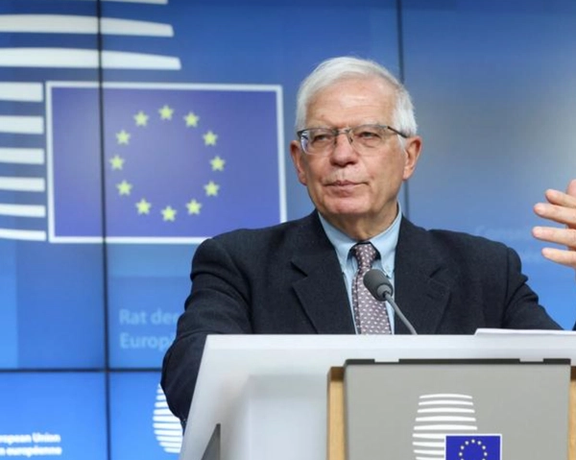
EU High Representative Josep Borrell confirmed On Tuesday that the Swedish citizen detained in Iran for 500 days works for the European Union.
He assured that everything was being done to obtain his release, although his office kept Iran’s hostage-taking under wraps all along, while holding talks with Iran on the nuclear issue.
Sweden on Monday said a Swedish citizen in his 30s was arbitrarily detained in Iran last year and called for his immediate release.
The Swedish government didn’t identify the man, but Borrell named him as Johan Floderus, a Swede who is working for the European Union.
Citing anonymous sources, the New York Times said Floderus was arrested on a private trip to Iran for possible use by Tehran as a bargaining chip in efforts to seek concessions from the West.
Iran’s Foreign Ministry spokesman, Nasser Kanaani, told the semi-official Fars news agency that he had no information on the case. However, Iran had announced in July 2022 that it had detained a Swedish citizen.
The Swedish Foreign Ministry said the man was detained in Iran in April last year but declined to give details.
Last month, the United States announced a “prisoner exchange” deal with Iran to free five US citizens. At the same time Washington allowed $9 billion of Iran’s frozen funds in South Korea and Iraq to be released.
The EU, Germany, France, The United Kingdom and the US have been trying to reach a deal with Iran to revive the JCPOA nuclear agreement abandoned by the Trump administration in 2018.
Reporting by AP
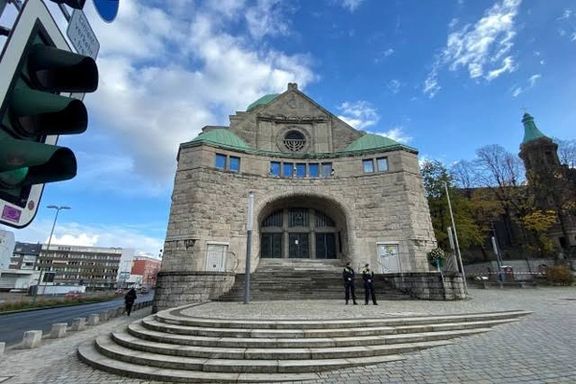
A court in Germany has levied accusations against an individual in connection with a fire that occurred in November 2022 at a school in the city of Bochum.
The defendant is alleged to have received directives from the Iranian government, with the primary target being a synagogue situated adjacent to the school.
The 36-year-old defendant, a dual Iranian-German citizen, is set to face trial on September 12th in the regional high court of Dusseldorf, as indicated by the official indictment. He has been charged with orchestrating an arson attack under the orders of Iranian government authorities, targeting a synagogue in the Ruhr region of western Germany.
Court documents reveal that the accused made unsuccessful attempts to recruit an acquaintance as an accomplice in executing the attack plan, with the acquaintance subsequently reporting the matter to law enforcement authorities.
The incident, which happened in mid-November, resulted in only minor damage. Since that time, the accused has remained in custody.
Prior to these developments, German media had referred to the accused as Babak J. and linked him to an earlier synagogue attack in the city of Essen, in November. Reports indicated that he had also been planning a third attack on a synagogue in Dortmund, where he was eventually apprehended.
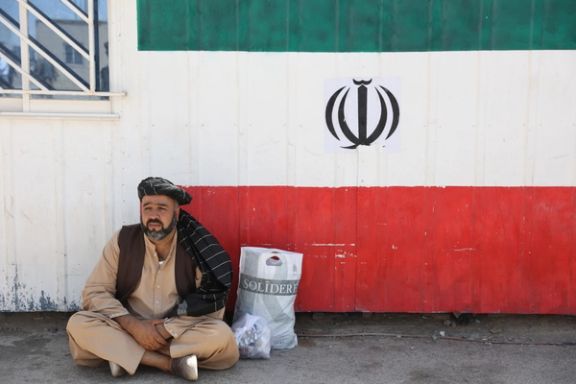
Media in Tehran are increasingly sounding alarms about the rapid growth of the Afghan population in Iran, which is estimated to be between five to ten million now.
The conservative Jomhuri Eslami reported last week that unofficial statistics indicate that last fall out of 300 babies born at the hospital of Kavar, a small town near Shiraz, capital of southern Fars province, 297 belonged to Afghan families.
According to the newspaper, which is one of the Islamic Republic’s oldest, the latest statistics also show that the number of Afghans in the province has risen to 357,000 from 121,000 since the Taliban took over the Afghan government in August 2021.
Officials say hundreds of Afghans are entering Iran daily from the eastern borders. Less than one million Afghans in Iran have refugee status, and most of the rest are illegal immigrants.
“Security officials must concerned that the presence of so many foreign nationals will entail many threats [to national security],” Jomhuri Eslami wrote. Iranian authorities and some media usually refer to Afghan immigrants and refugees as “foreign nationals.”
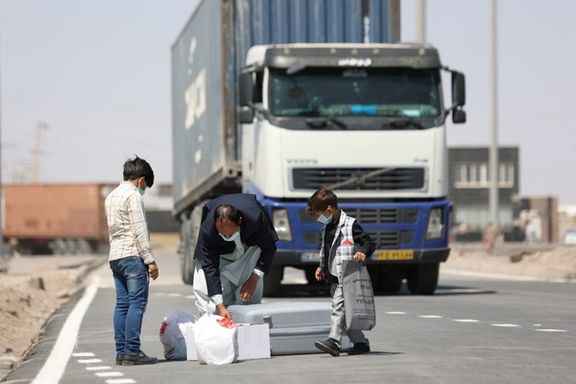
The article, extensively republished by other newspapers and websites, also referred to the involvement of two Afghan national in an attack on Shahcheragh shrine and mausoleum in Shiraz on October 26, 2022. Both men were publicly hanged on July 8.
In an unattributed commentary in July, Aftab News, a news website close to former President Hassan Rouhani and the moderate conservative Moderation and Development Party, also warned about what appears to be a massive increase in the number of Afghans in Iran and claimed that authorities are actively encouraging the growth of the Afghan population.
Aftab News alleged that factors such as a lack of control at eastern borders of the country, issuing thousands of tourist visas daily when applicants do not intend to return to their home country, automatic renewal of tourist, pilgrimage and other types of visas, elimination or reduction of cash fines for illegal entry and stay, indicate “targeted planning” by the authorities.
This may refer to some hardliner media openly promoting acceptance of more Afghans in Iran to increase the country’s population as a solution to the falling birth rate among Iranians when the Revolutionary Guards (IRGC)linked Tasnim news agency suggested in 2022.
Iran's population growth rate has dropped to around 0.7 percent in the past few years.
“Acceptance of immigrants can be one of the key solutions to overcome the problem of [dwindling] population and workforce given the drop in the fertility rate in the country,” Tasnim said in an unattributed commentary entitled “Iran Forced to Accept Immigration of Foreign [Nationals] to Resolve Its [Dwindling] Population Problem” on May 19, 2020.
“The closeness of beliefs and culture of neighboring countries, particularly Afghanistan, has provided an extraordinary opportunity to Iran in this regard,” the commentary said, presumably with an eye to accepting more Afghan Hazaras who are Shiites like Iranians.
Hazaras make up the biggest ethnic group among Afghan immigrants to Iran followed by Sunni Tajiks, Pashtuns and Uzbeks.
Supreme Leader Ali Khamenei has repeatedly stressed that the country’s population should rise to at least 150 million, presumably to strengthen the only Shiite-ruled Muslim state.
Faraz Daily, an online newspaper, reported last week that there are now transportation companies that move commercial consignments and belongings of Afghan household to Tehran within a week from Kabul and Herat.
This, the newspaper argued “has been causing concerns in Iran because the illegal residence of these immigrants, in the absence of laws and policies to regulate their presence, will lead to numerous political, social and even security challenges,” Faraz Daily wrote.
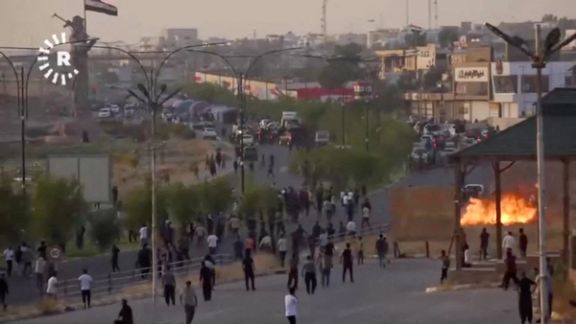
Ethnic tensions between Kurds and Arabs are simmering in Syria and Iraq with reports that Iran is sowing further discord to weaken dissident Kurdish forces.
AN uprising by Arab tribes against the Kurds is reportedly backed by Tehran proxy militias as well as Turkish forces, targeting different Kurdish groups across the region, with oil-rich provinces of Deir ez-Zor (Deir al Zor) in Syria and Kirkuk in Iraq as hotbeds of clashes.
Iran’s Foreign Minister Hossein Amir-Abdollahian met with his Turkish counterpart, Hakan Fidan, in Tehran, where they stressed the need for further security cooperation.
During their joint presser, Fidan called on Syria’s government to bolster cooperation against the PKK, emphasizing that the group is designated a terrorist outfit by the US and Europe as well as Turkey.
Amir-Abdollahian, in his turn, said the sovereignty and territorial integrity of nations should be respected, calling for collaborations among Tehran, Ankara, and Damascus regarding issues related to terrorism and border security. Without going into details, he praised Fidan’s “constructive ideas regarding the common borders and counterterrorism efforts.”
US-based journalist Diliman Abdulkader said Kurds are targeted on all fronts this week, with bombing in Iraqi Kurdistan’s Erbil, bloody protests in Kirkuk and rise of the Arab tribes in Kurdish-controlled northern Syria.
On Sunday, Reuters reported that senior US officials visited Syria's eastern Deir ez-Zor province in an attempt to defuse the uprising by Arab tribes against Kurdish rule that is destabilizing northeast Syria. According to US State Department, Deputy Assistant Secretary of State for Syria Ethan Goldrich and Major General Joel B Vowell, who heads the coalition against Islamic State, met Arab tribal leaders and SDF commanders and agreed to "address local grievances" and "de-escalate violence as soon as possible and avoid casualties."
The Arab tribal backlash against the rule of the Kurdish YPG militia has led to clashes, with over 150 killed and dozens injured in the past several weeks. The militia forms the backbone of the US-backed Syrian Democratic Forces (SDF), and the uprising is the biggest threat to their rule since they drove Islamic State (ISIS) out of a swathe of the country's north and east in 2019.
Foreign policy analyst Walid Phares said on X (formerly known as twitter) that the clashes between the SDF and Arab Sunni tribes in Deir ez-Zor "have been instigated by Iranian intelligence,” claiming that “the Islamic Republic and the Muslim Brotherhood militias are collaborating to weaken and reduce the SDF control in eastern Syria” aimed at "crippling US presence.” According to Phares, Turkish drones are also providing air support to the Muslim Brotherhood militias attacking SDF positions in Northern Syria.
Hussain Abdul-Hussain, a research fellow at the Foundation for Defense of Democracies, said Monday that the Iranian regime is preparing “to subdue US Kurdish allies in Iraqi Kurdistan” as “regime’s pawn in Lebanon Hezbollah is preparing to engage in violence” against US Druze friends in southern Syria.
Several cities in southwestern Syria are also scenes of protests for economic reform and curbing Iran's influence. Protesters, demanding an end to President Bashar al-Assad's authoritarian rule, earlier closed the ruling Baath party headquarters in Sweida, a southwestern Syrian Druze city. Iran intervened in the Syrian civil war as early as 2011 to defeat a rebellion against Assad. Now, having built a large military presence there, Iran is using Syria to expand its regional reach and pose a threat to Israel's northern borders.
The involvement of the pro-Iran militias also has another dimension. Late in August, Iran and Iraq formalized an agreement to dismantle Iranian Kurdish dissident factions stationed in the northern reaches of Iraq and relocate them from their bases. These dissident factions in Iraq have aligned their allegiances with the two principal Iraqi Kurdish parties: the Kurdistan Democratic Party, headquartered in Erbil, and the Patriotic Union of Kurdistan party, with its stronghold in Suleimaniyah.
The arrest of a renegade Arab commander last month by the SDF sparked unrest that soon swept a string of towns from Busayrah to Shuhail, in a strategic oil belt in the heart of Arab tribal territory east of the Euphrates River. Arab tribal fighters initially drove out the Kurdish-led forces from several large towns, but the SDF has begun to regain the upper hand.
The presence of the US military in regions under the control of the SDF has acted as a deterrent against the expansion of militias supported by Russia and Iran, who have established a foothold in territories to the west of the Euphrates River.
SDF has accused Tehran and the Damascus of sending tribal militias to wreak havoc in the northeast of Syria.
Arab tribal leaders say they have been deprived of the oil wealth in their region after the Kurdish-led forces gained control over Syria's largest oil reserves following the departure of the Islamic State. "We want them out of all of Deir ez-Zor, we want the administration of the area in the hands of the original Arab inhabitants," said Sheikh Mahmoud al Jarallah, a tribal leader.






